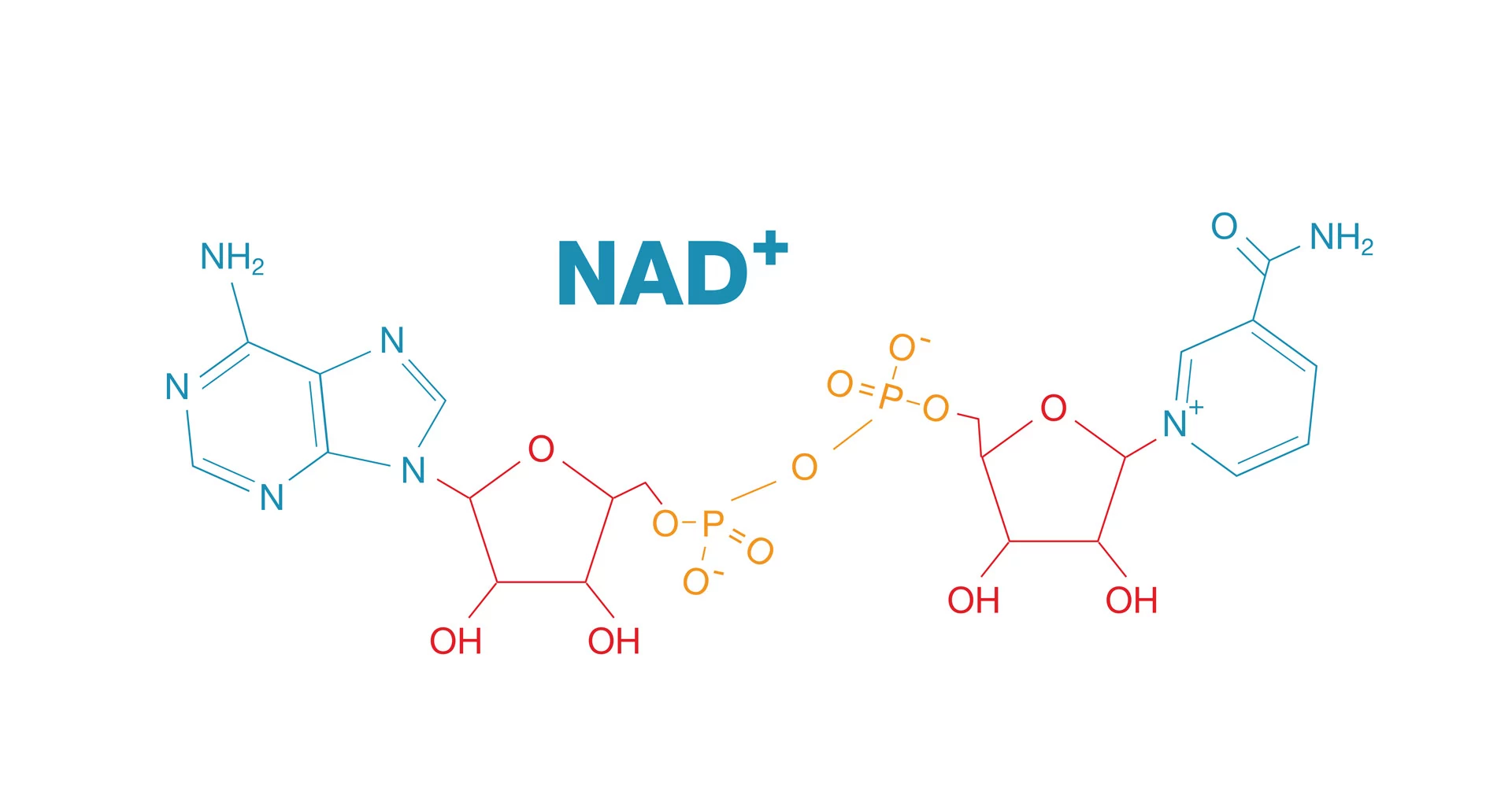What is NAD (Nicotinamide Adenine Dinucleotide)?
Introduction
NAD, or Nicotinamide Adenine Dinucleotide, is a crucial molecule found in every cell of your body. It plays a vital role in energy production, cellular repair, and overall health. In recent years, NAD has gained significant attention for its potential benefits in anti-aging and disease prevention. Let’s delve deeper into what NAD is, its functions, and how it can impact your well-being.
The Role of NAD in Energy Production
NAD is a coenzyme involved in cellular respiration, the process by which cells convert nutrients into energy. It acts as a carrier of electrons, accepting them from energy-rich molecules like glucose and transferring them to the electron transport chain, where they are used to produce ATP, the primary energy currency of cells.
Without sufficient NAD, your cells would struggle to produce energy, leading to fatigue, weakness, and other health problems.
NAD and Cellular Repair
NAD also plays a crucial role in DNA repair, a process that helps protect your cells from damage and prevent the development of diseases like cancer. When DNA damage occurs, NAD helps activate enzymes that repair the damaged DNA, preventing mutations and maintaining cellular integrity.
NAD and Aging
As we age, our NAD levels naturally decline. This decline has been linked to various age-related changes, including decreased energy production, muscle loss, and cognitive decline. Some studies suggest that increasing NAD levels may help slow down the aging process and improve overall health.
NAD and Disease Prevention
In addition to its role in anti-aging, NAD has also been implicated in the prevention of various diseases. Some research suggests that NAD may be beneficial for:
- Neurodegenerative diseases: Alzheimer’s disease and Parkinson’s disease have been linked to decreased NAD levels. Increasing NAD levels may help protect brain cells and slow the progression of these diseases.
- Metabolic disorders: NAD plays a role in regulating metabolism. Low NAD levels have been associated with conditions like obesity and type 2 diabetes.
- Cardiovascular disease: NAD is involved in heart health by regulating blood pressure and cholesterol levels.
- Cancer: Some studies suggest that NAD may play a role in preventing cancer by promoting DNA repair and reducing oxidative stress.
How to Increase NAD Levels
While your body naturally produces NAD, there are several ways to boost your levels:
- Dietary supplements: NAD precursors like nicotinamide riboside and nicotinamide mononucleotide (NMN) can be taken as supplements to increase NAD levels.
- Healthy lifestyle: Eating a balanced diet, exercising regularly, and getting enough sleep can help support your body’s natural NAD production.
- Lifestyle changes: Reducing stress, avoiding excessive alcohol consumption, and limiting exposure to toxins can also help maintain healthy NAD levels.
Conclusion
NAD is a vital molecule that plays a crucial role in energy production, cellular repair, and overall health. As we age, our NAD levels naturally decline, which can contribute to various health problems. By understanding the importance of NAD and taking steps to increase your levels, you can support your overall well-being and potentially slow down the aging process.




